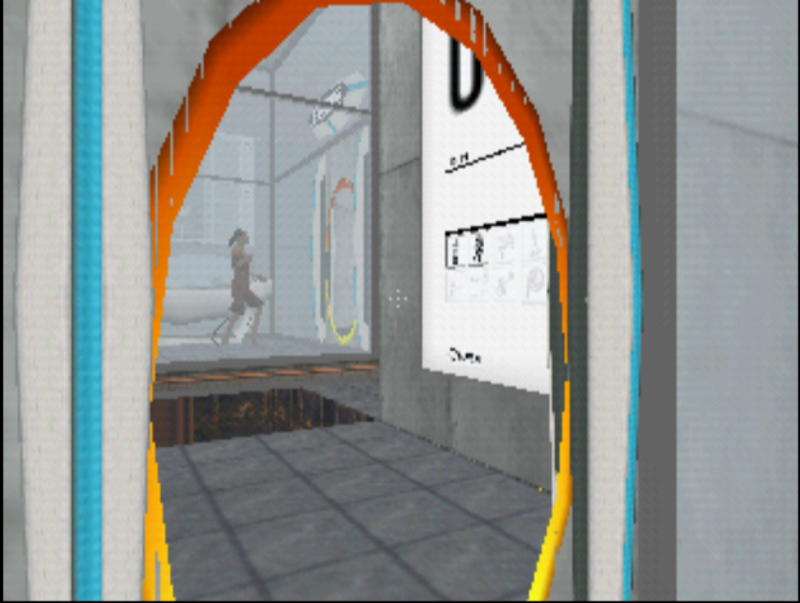It’s not the use of Portal, it’s the use of an N64 SDK that’s the issue.

Any great effort to generate appreciation for Nintendo’s classic platforms, done outside Nintendo’s blessing, has a markedly high chance of incurring Nintendo’s wrath. This seems to apply even when Nintendo has not actually moved to block something, but merely seems like it might.
That’s why, one week after announcing that his years-long “demake” of Valve’s classic Portal to the Nintendo 64 platform had its “First Slice” ready for players, James Lambert has taken down Portal 64. There’s no DMCA takedown letter or even a cease-and-desist from Nintendo. There is, as Lambert told PC Gamer, “communication with Valve” that “because the project depends on Nintendo’s proprietary libraries, [Valve] have asked me to take the project down.”
Ars contacted Valve and Nintendo for comment and will update the post with any new information. Lambert could not be reached for comment.
It’s far from the first time Valve has taken preemptive action to avoid Nintendo’s involvement. In mid-2023, a Wii/GameCube emulator, Dolphin, halted its planned release on Valve’s Steam platform after Nintendo contacted Valve and requested the emulator not be released. In that case, the Dolphin emulator’s weakness to potential action under the Digital Millennium Copyright Act’s anti-circumvention provisions was its use of a proprietary cryptographic key from the Wii. Rather than argue about keys, BIOS files, and other matters in court, Dolphin gave up on Steam, while keeping the project alive elsewhere.Advertisement
Valve has seemingly been silent on Portal 64 until now. Playing the game required access to a Steam-purchased copy of Portal, with one of that game’s data files then patched by Lambert’s software to work inside Nintendo 64 emulators. Lambert wasn’t charging for his project, although he did have a Patreon to further his work on it. Lambert told PC Gamer that he thought “Valve didn’t want to be tied up in a project involving Nintendo IP,” and he didn’t blame them.
The “Nintendo’s proprietary libraries” at issue inside Lambert’s project appear to be Libultra, the official SDK provided to those developing Nintendo 64 games on Silicon Graphics machines (and later other platforms). There exists an open source N64 SDK, libdragon, but Lambert told PC Gamer that he wouldn’t move over to that without assurance that it would appease Valve—and, by proxy, Nintendo. Lambert has many more N64-related and adjacent projects to work on, judging from his YouTube channel.
Nintendo has been remarkably successful over the years at keeping games and tributes it didn’t make from remaining in place: cover art for emulated Switch games, explanations of emulator installation, fan games, Game & Watch hacks, and even Mario-themed Minecraft videos. The company has created a general atmosphere of legal fear around anything touching its properties. That extends, apparently, even to large, well-resourced companies with far more tolerance for fan hacking.




